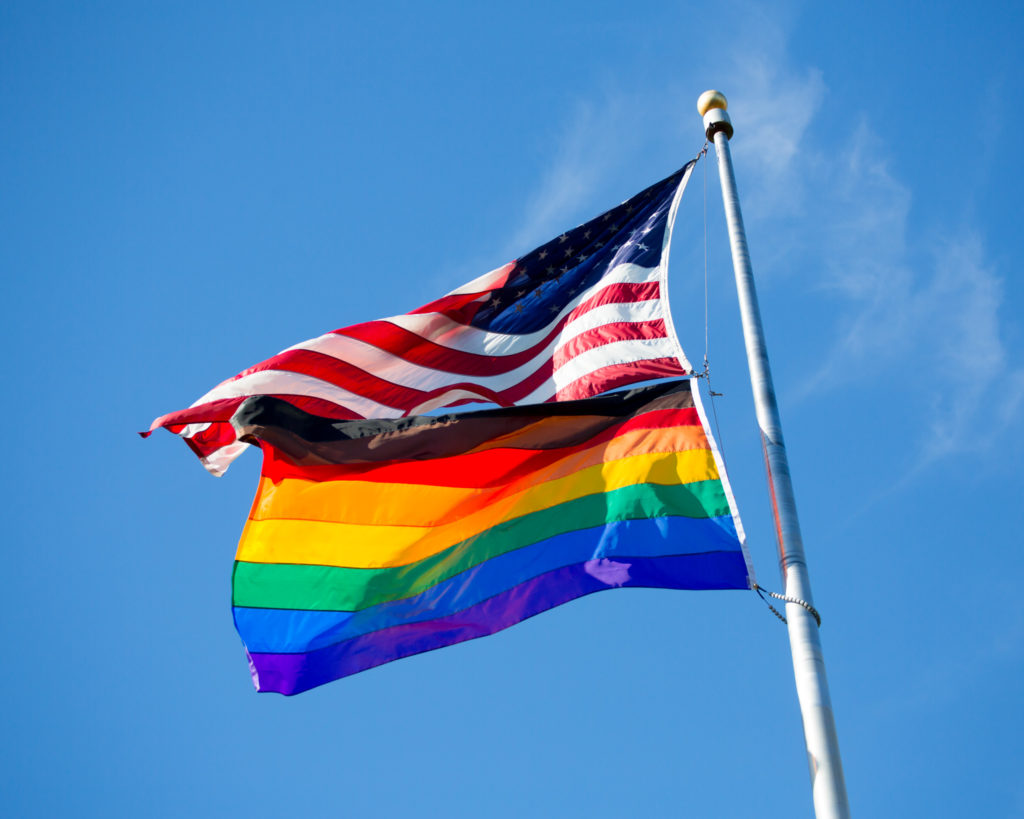By Glenn Billman, deputy campus editor
Almost 90 students from eight universities gathered Oct. 13 and 14 for the fourth annual Reach(OUT) LGBTQA+ Career Conference, the only conference for LGBTQA+ professional development at the undergraduate level in the nation.
In its four years, Reach(OUT) has brought together around 400 students and almost 90 professionals to talk about gender, sexuality and the workplace. In 2016, it was awarded the 2016 National Association of Colleges and Employers “Excellence in Diversity” Award.
“We wanted to provide a space for queer and trans professionals and queer and trans students to engage around what it would really be like in the workplace, and how to anticipate your experience and build skills around professional development,” said co-founder Jamie L. Bergeron, the manager of the Office of Institutional Diversity and Inclusion at Northeastern.
Hosted in the John D. O’Bryant African-American Institute, the conference covered intersectionality, microaggressions and issues of identity within the context of the workplace. Professionals represented an array of sexual and gender identities, races, ethnicities, abilities, industries, experience levels and ages.
“For some, it’s the first time that they’re ever seeing someone who shares their identity in a professional work setting, or in their industry,” Bergeron said. “So that ability to envision yourself in the future can be really, really powerful.”
The conference kicked off Oct. 13. with keynote speeches from Northeastern alumni Amila Cooray and Colleen Finnegan. Cooray, a 2016 graduate, works on the Mars 2020 rover at NASA’s Jet Propulsion Laboratory. Finnegan, a 2011 graduate, works at Squarespace NYC on developing the employer brand, recruitment marketing and creating diversity and inclusion recruiting strategies.
The majority of the conference consisted of discussions. The first night, student participants broke out into identity-specific caucus groups to discuss the ways in which their identities intersect and affect one another. Saturday, students engaged in one-on-one mentoring with panel guests and attended breakout sessions on subjects like unconventional jobs and workplace rights.
“There is the ability to be your most authentic queer or trans self in the workplace, and there are skills and strategies that you can utilize to ensure you’re successful and safe and supported in doing so moving forward in your career,” Bergeron said. “And that’s not to say it won’t come with challenge and disappointment and discomfort sometimes, but I do think the goal is to be able to be our most authentic selves.”
Thirty individuals from student and staff planning committees planned the conference. Michelle Hagopian, a journalism co-op coordinator and a member of the staff planning committee, said the most impactful part of the conference is showing students they can succeed in their career of choice.
“The most important thing is just knowing you can be who you want to be and be successful in your career, and knowing that there is community no matter what industry you go into,” Hagopian said.
Fourth-year international affairs major Sydney Mokel was a member of the student planning committee. She said it was natural for Reach(OUT) to be created at Northeastern because of the emphasis on cooperative education.
“This is an opportunity for students, who might even just be freshmen who are really right out of high school, that aren’t ready to pursue a co-op,” Mokel said. “[They] can still take this opportunity to get themselves ready.”
Mokel also said the conference is less transactional than other networking events.
“I always find one-on-one networking to be extremely impactful: not just getting questions answered or hearing about certain topics that might be relevant or of interest to you, but getting to sit down one-on-one with someone and get the chance to network and see how that feels, and ask questions,” Morkel said. “It’s not a career fair. It’s not a matter of just dropping off your resume — that’s always encouraged to make that connection or if you have that certain interest — but it’s more about person-to-person connection and sharing.”
In the future, Bergeron said she hopes to give more time to panels and discussions, as well as include a platform to talk about trauma in the official agenda. However, she said she considers this year’s conference to be a success.
“All we want is for each individual student to get something they needed to hear,” Bergeron said. “And typically what happens, and this happened again this year, is most students walk away feeling really energized and better prepared.”









